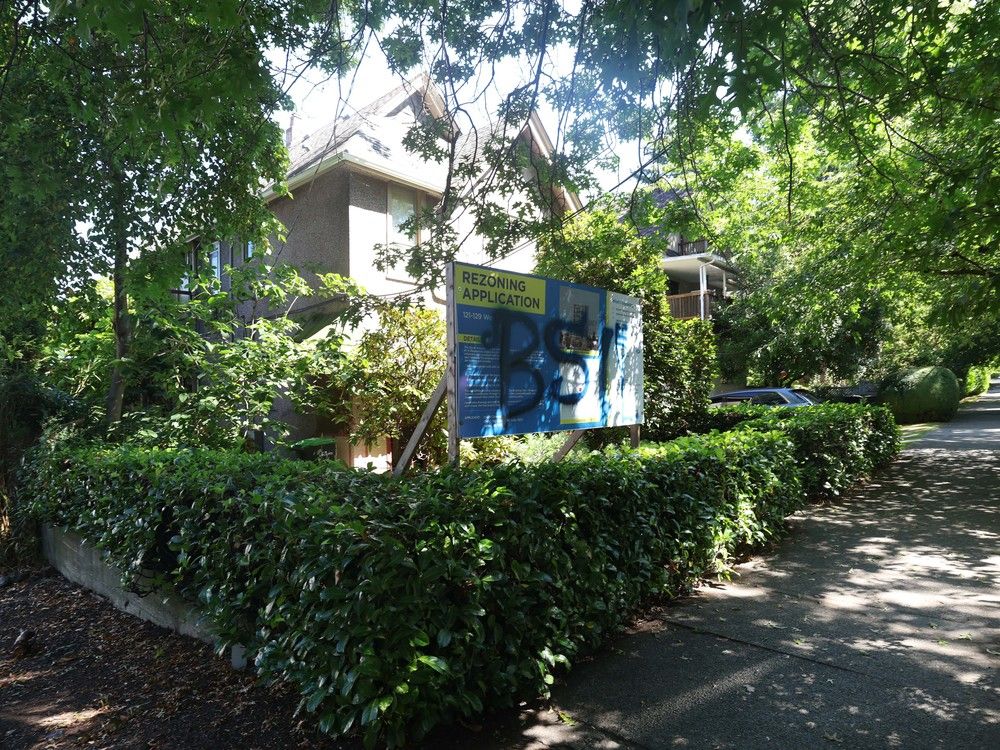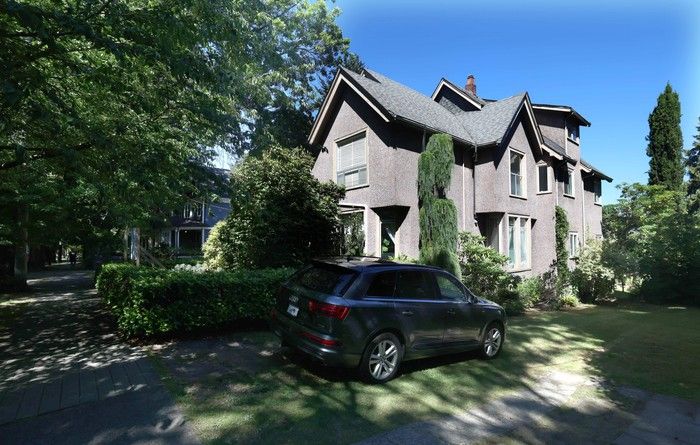
The latest city of Vancouver update on its Broadway plan touts all the residential development in progress along the corridor.
A critic says the quarterly updates provide detailed data, but don’t give a real picture of the challenges facing the plan, including stalled and delayed construction.
“Everything is positive in the report. There could be staff reports that are more balanced, even with just some flags for caution — that rental rates are falling, construction costs are increasing, and that there are projects with stalled approvals,” said Michael Geller, a retired developer, architect and consultant, who a vocal critic of the plan and specific projects within it.
He is wondering how many of the projects touted in the updates are likely to get built and why there is no mention at all of the potential risks in the updates.
The updates are designed to track progress of the high-density plan, which was approved in 2022 and covers an area of 500 blocks around the new Broadway subway line, from Vine Street to Clark Drive and from 1st Avenue to 16th Avenue.
“Staff monitor the amount and progress of development proposals in the plan area, including the volume of inquiries/applications by development stage, which provides data on how many projects have proceeded to construction and completion,” the City of Vancouver told Postmedia.

In May, city council put off approving Havn Development’s rezoning application to build an 18-storey tower with 165 rental units on West 11th Avenue in Mount Pleasant over concerns over how it would shadow a park next door.
Following that decision, somebody moved into one of the three houses now on the properties, at the “end of June or a bit later,” said Monique Poncelet, who lives in the area and is among residents who oppose the highrise.
Other residents in the area noted that tenants who had lived in the three houses had to leave by the end of last November, so they were interested to see them being reoccupied after council deferred the application.
Adrian Cheng of Havn Development declined to comment on plans for the West 11th site and why the project is no longer listed as an “upcoming development” on the company’s website.
The company’s two other Broadway plan proposals remain on the website.
“In my personal opinion, (the developer) would not be renting out the units if they were going ahead for redevelopment,” said Sandy James, a former planner who has written about the site at 121-129 West 11th Ave. between Columbia and Manitoba streets.
James said council asked for a different project that would not overshadow the park, but such a redesign would mean the developer can’t maximize the height of the building. It also set a deadline that construction must begin within two years after a rezoning approval.
Postmedia asked the City of Vancouver if Havn’s rezoning application for the West 11th Avenue project remains in progress.
“Staff and the applicant continue to be in communication. The applicant is considering their options,” said the city in an email.
The update noted that the Broadway plan is still in it infancy given that rezoning, permitting and construction take years. Nearly three years after the plan was rolled out, just four building permits and two occupancy permits have been issued.
“Staff closely monitor the plan’s implementation to ensure it is meeting its housing, job space, public amenity and other objectives, and the city is committed to reviewing the plan periodically,” the city’s email said.
The most recent update to city council, dated July 30, covers the second quarter of the year. The next will cover July to September and will be available in November.
The latest update lists 151 projects, encompassing almost 24,000 residential units, in the so-called development pipeline, which starts when the city receives an initial letter of inquiry for a project and ends when a developer gets a permit to allow residents to move in.
Projects involving 11,142 housing units are in the process of applying for rezonings, according to the update.
The 24,000 units in the pipeline include 3,835 below-market rental housing units, which is about 1.6 times the 2,277 existing units that will be lost to redevelopment based on current applications and inquiries, it said.
About 88 per cent of the 24,000 units in the pipeline are for rental units, according to the report.